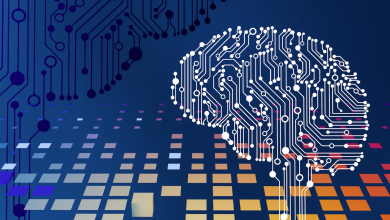With the launch of GPT-5, the global AI landscape is accelerating. In healthcare, this transformation is especially urgent and Europe has a distinct opportunity to lead. Yet despite its research strength and policy ambition, the EU’s innovation capacity continues to lag behind the US and China. As Mario Draghi warned in his report on European competitiveness, this gap represents an “existential challenge” to the bloc.
Much of the policy focus on AI to date has centred on regulation and infrastructure. But if Europe is to lead in healthcare AI, its real advantage won’t come from computing power alone. It will come from its ability to integrate people, systems, and institutions. This is where Europe’s knowledge triangle—linking research, education, and business—must be fully activated. By connecting these spheres, Europe can turn scientific discovery into deployable, trusted technologies that serve patients and society.
Recent data from EIT Health and EIT Digital’s SkillSync platform, Europe’s largest live dataset on AI start-up talent, offers a clear view of what success in AI actually looks like. The analysis of 23,000 professionals across 3,600 AI start-ups shows a consistent trend: the most successful companies aren’t just coding powerhouses. They are interdisciplinary teams that combine deep tech with clinical insight, strategic thinking, and regulatory fluency.
Technical skills remain essential, but they are no longer enough. Regions with strong IT baselines but weak soft skills are falling behind. In contrast, ecosystems that foster project management, communication, health economics, and system integration are seeing more successful innovation—especially in healthcare. It’s this fusion of expertise that enables real-world adoption.
Europe needs more cross-disciplinary capabilities. Success in health AI is not driven by algorithms alone, but by the ability to validate technologies in clinical settings, navigate regulation, and integrate with complex health systems. Europe’s ecosystems that focus on these factors are the ones turning prototypes into trusted, widely adopted tools.
Media narratives often pit Europe against Big Tech, asking whether we can “out-GPT” Silicon Valley. But, we need to shift our focus. The US and China have advantages in capital, cheap energy and low regulation. Europe should stop trying to outcompute them and instead outvalidate and outintegrate. That’s where our strength lies.
Europe has world-class technical talent, leading researchers and top-tier medical institutions. But our true competitive advantage lies in developing AI talent that can collaborate across disciplines including regulatory, clinical, economic, and operational. These are the skills that get AI from prototype to patient.
Too often, start-ups are expected to do everything with limited resources. They can’t hire 100 specialists with 100 unique skillsets. They need access to networks of people with complementary skills, who understand the pathways to market, especially in complex sectors like healthcare.
In Europe, too often we fail to combine our complementary skillsets.
The result is that, as the Draghi report noted: “Much of the knowledge generated in research institutions remains commercially unexploited…The links between higher education and business are weak…”
Bridging this gap is critical. We believe our model and community, bringing together research, education, business and healthcare partners is essential for this kind of innovation. This is how we connect clinical need with academic rigour and commercial delivery.
The race to develop the next AI innovation is on. It’s great to see the European Commission is taking this race seriously, as demonstrated by the three AI strategies expected later this year. We urge policymakers to ensure these strategies address the last mile of innovation to take the technology from lab to bedside. That means investing not only in technical infrastructure, but also in training, validation, and market access. Europe excels at research. Where it falls down is bringing the technology to the people who need it most.
Europe may struggle to compete with the US and China on general purpose AI, but we absolutely have the strengths we need to be the global leader on healthcare-specific AI.
AI is no longer a lab experiment. In healthcare, it’s increasingly a matter of public trust, clinical integration, and economic sustainability. The companies that succeed are those that know how to navigate these complex realities. They can code, collaborate, and communicate.
Europe’s opportunity lies in delivering deployed, validated, life-saving AI. That starts by recognising that success in AI is not a technical challenge, it’s an interdisciplinary one.




